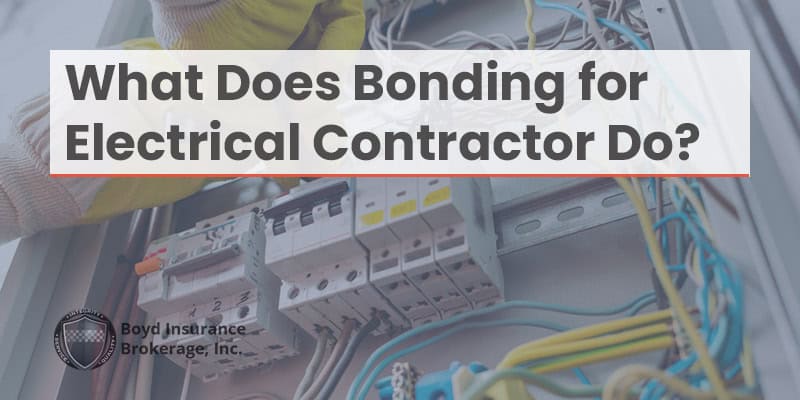Did you know that electrical contractors need surety bonds in Spokane? If you’re not sure what a surety bond is, it’s a type of guarantee, and several states, including Washington, require electricians to have surety bonds. A surety bond helps ensure that the electrical contractor performs the work in accordance with all of the rules, requirements, regulations and laws that are applicable to the type of work being performed. If the electrical contractor fails to perform the work in accordance with all of those rules and regulations, the surety bond pays the client a certain amount of money up to $4000 in Washington. The contractor’s vendors may also make a claim against the bond if the contractor fails to pay the vendors. Let’s take a look at electrical contractor bonds and what they do for the electrical contractor and the client.
Is a Bond Required for an Electrical Contractor in Washington?
Electrical contractors in the state of Washington must have a surety bond. It’s part of the process of obtaining an electrical contractor’s license.
What Is a Bond for an Electrical Contractor?
When an electrician gets his or her electrical contracting license, he or she is often required to also get a surety bond. A surety bond is designed to provide additional peace of mind for the regulating authority and the customer or client. This is because if the contractor fails to perform his or her obligations under the contract, a claim can be made against the surety bond.
A Surety Bond Is an Agreement Between Three Parties
Surety bonds have three participants, called parties. Those parties are officially known as the Principal, Obligee and Surety.
- Principal – The electrical contractor who is performing the work.
- Obligee – The customer, client or general contractor who needs the work performed.
- Surety – The business that issues the bond.
What Does a Surety Bond Do?
A surety bond primarily does three things. It protects the electrical contractor’s customers from bad or improper work, misconduct or fraud. It helps protect the agency that issued the electrical contracting license, and it helps guarantee that all the electrical work will be performed correctly.
What Happens if the Work Is Not Performed Correctly?
If the work is not performed correctly or at all and the electrical contractor refuses to remedy the situation, the client can file a claim against the surety bond. If the claim is approved, the end client receives financial compensation.
What Happens When a Client Files a Claim Against a Surety Bond?
When a client files a claim against the surety bond, the surety company will investigate the claim. If the claim is determined to be valid, the electrical contractor will be informed and given a certain amount of time to remedy the issues. If the contractor fails to remedy the situation, the surety bond will pay the client a certain amount of money up to $4000 for the improper work as well as damages.
How Does a Surety Bond Help Ensure Proper Work Performance?
If a claim is paid out for improper work, the surety company often goes after the contractor for the full amount of the claim payment. For example, let’s say that a client makes a claim against the surety bond for improper work. After an investigation, the surety company concludes that the work performed was not up to code. The surety company gives the contractor 30 days to remedy the situation. However, the contractor never performs and further work. As a result, the surety company pays the client a certain amount of money for their claim. Once that money has been paid, the surety company then goes after the electrical contractor for the full amount of the claim.
How Does an Electrical Contractor Get a Surety Bond in Washington?
Boyd Insurance Brokerage Inc., we offer all types of contractor bonds, including bonds for electrical contractors. Most electrical contractors need a bond in the amount of $4,000. If you’re not sure which type of bond you need or if you need more than one type of surety bond, our agents can help determine your surety bond needs.
How Much Do Surety Bonds Cost?
Surety bonds typically cost a percentage of the total amount of the bond. On average, contractors can expect to pay between 3 and 5 percent of the total cost of the bond. This means that a $4,000 surety bond could cost as little as $95 or as much as $1200. Companies with excellent credit scores and track records tend to pay less than companies who have low scores and/or who have had previous surety claims against them.
Surety Bonds in Washington from Boyd Insurance Brokerage Inc.
If you are an electrical contractor and need a surety bond in order to get your license, we can help you at Boyd Insurance Brokerage Inc. Our agents can talk to you about surety bonds and help you find the right one for your needs.
If you need a contractor’s surety bond in Washington state, give us a call at 509-340-2693.


